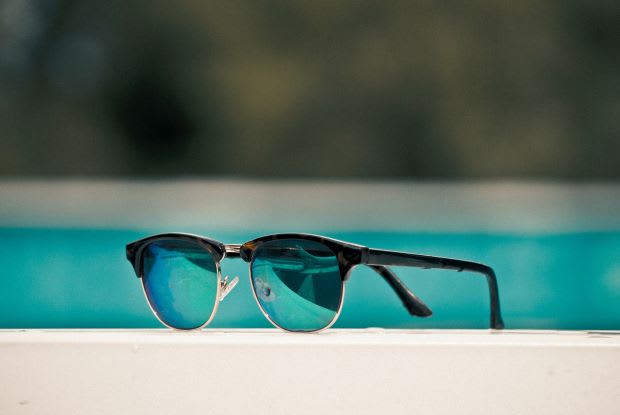Table of Contents
I. Common Eye Conditions and Treatments
II. Enjoying the Sun While Protecting the Eyes
III. Things to Avoid for Eye Health
IV. Foods that are Great for Your Eyes
Common Eye Conditions and Treatments
Our vision allows us to navigate the world around us. It allows us to see our loved ones and explore the world. The importance of our eyesight is paramount, but so is your ocular health. Proper eye care is necessary to prevent many potentially detrimental eye conditions.
Glaucoma occurs when there is damage to your optic nerve. The optic nerve is what transfers visual stimuli to your brain to process images. This eye disease is usually caused by prolonged high pressure inside the affected eye. Glaucoma can result in blindness, but vision loss can be prevented with early treatment.
If you are diagnosed with glaucoma, you may be prescribed a brinzolamide ophthalmic medication. Brinzolamide is a carbonic anhydrase inhibitor, which works by decreasing fluid in the eyes. This reduces the intraocular pressure in those with glaucoma. [1] For other eye conditions, an anti-inflammatory corticosteroid for the eyes or an immunosuppressant like Restasis may be prescribed. Read on to learn about ways to ensure your ocular health and prevent harmful eye conditions.
When you are out and about, strong ultraviolet (UV) rays from the sun can harm your eyes. If your eyes are exposed to too much UV, you may be at an increased risk of cataracts and macular degeneration. But this does not mean you have to stay stuck inside. The natural sunlight, as long rays are not directly hitting your eyes, is actually beneficial for the eyes. Just remember to wear a pair of sunglasses with both UVA and UVB protection the next time it’s sunny. [2] In addition to UV rays from the sun, many outdoor activities can be a threat to eye health. Sports, especially contact sports, can lead to an eye injury, which is why sports goggles with polycarbonate lenses are recommended whenever you participate. You should also always wear safety glasses when mowing the lawn, woodworking, and performing any activity that involves debris flying around in the air. [2] Many people have to sit behind a computer screen for long hours for work. Doing so can strain the eyes and cause blurry vision, short-sightedness, and dry eyes. If screen time is unavoidable, consider asking your doctor about computer glasses and make sure your prescription is up to date. Avoiding glare from windows can help prevent eye strain. Similarly, blinking more often and resting your eyes every 20 minutes can go a long way for maintaining healthy eyes. [2] Most people know that smoking can lead to heart disease and lung cancer, but many people don’t realize that smoking can also cause blindness. Smoking increases the risk of dry eyes, cataracts, macular degeneration, glaucoma, and diabetic retinopathy. If you smoke, you may want to try quitting for the sake of your eye health. Quitting smoking can be extremely difficult, but talking to your doctor about ways to quit can make the process easier. [3] Building up a strong immune system and maintaining a well-balanced diet can help keep your eyes in tip-top shape. Consuming a healthy range of vitamins, nutrients, and antioxidants can reduce your risk of developing eye conditions. Your eyes need several antioxidants to stay healthy, including: A good diet for your eyes will include healthy sources of proteins, dairy, vegetables, and fruits. You will want to avoid processed foods high in saturated fats and sugar. Some of the best foods to try are: Eye exercises can be a good way to protect your eye health and prevent complications. Your doctor can provide you with more specific eye exercises based on your needs. Generally, these exercises are a good start to lessen eye strain and improve focus. This exercise is great because it can be done from a seated position. To do this exercise, hold your thumb 10 inches from your face and focus on it for 15 seconds. Then, focus on an object 10 or 20 feet away, focusing for another 15 seconds. Focus back on your thumb, and repeat five times. To do this exercise, focus on an imaginary point on the floor about 10 feet in front of you. Around this point, trace a figure eight with your eyes for 30 seconds. Switch directions, then trace a figure eight for another 30 seconds. This exercise challenges your focus and can help to keep your eyes flexible. It involves holding a finger just a few inches from your eyes and focusing on it. Then, holding your focus, slowly move your finger away from your face. Switch your focus to something in the distance, then back to your finger while slowly bringing it back to your eyes. Repeat this three times. [5] By leading a healthy life, exercising, and avoiding harmful activities, you can maintain good vision and eye health for life. Speak with your healthcare provider or an optometrist for more ways to protect your eye health. The content in this article is intended for informational purposes only. This website does not provide medical advice. In all circumstances, you should always seek the advice of your physician and/or other qualified health professionals(s) for drug, medical condition, or treatment advice. The content provided on this website is not a substitute for professional medical advice, diagnosis, or treatment.
Enjoying the Sun While Protecting the Eyes
Things to Avoid for Eye Health

Foods that are Great for Your Eyes
Eye Exercises to Try

a. Near and Far Focus
b. Figure Eight
c. Focus Change
